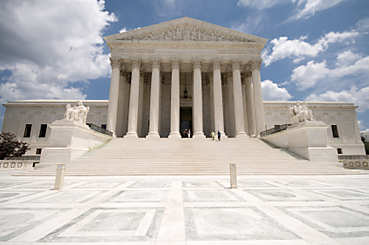
A resident representative holding power of attorney can be bound by an arbitration agreement that he or she signs on behalf of the resident, the U.S. Supreme Court ruled Monday, asserting that states are bound by the Federal Arbitration Act.
The decision came in Kindred Nursing Centers L.P. v. Clark.
The case began when the wife and daughter of two nursing home residents separately sued Kindred after their loved ones’ deaths, claiming substandard care. Kindred moved to dismiss the cases, arguing that arbitration agreements they had signed prohibited their taking the cases to court. The trial court denied Kindred’s motions, and the Kentucky Court of Appeals allowed the lawsuits to proceed.
The cases were consolidated under the Kentucky Supreme Court, which then held that the arbitration agreements were not valid because neither power of attorney specifically granted the holder the right to enter into an arbitration agreement.
Writing for the majority in a 7-1 opinion on Monday, however, Supreme Court Justice Elena Kagan said: “The Kentucky Supreme Court specially impeded the ability of attorneys-in-fact to enter into arbitration agreements. The court thus flouted the FAA’s command to place those agreements on an equal footing with all other contracts.”
LeadingAge said in a statement to McKnight’s Senior Living that it was “pleased that this decision reaffirmed the Supreme Court’s settled position that states may not create separate laws that impinge on the parties’ right to enter into an arbitration agreement in any case, and that nursing home contracts are not exempt from this position. However, the case also points out the importance of assuring that if a family member signs the entrance agreement he or she has a valid power of attorney.”
Argentum, too, said it was pleased with the court’s ruling that arbitration agreements are on equal footing with other types of agreements. “Argentum fully supports efforts to protect the ability of senior living residents and/or their legal representatives to make decisions regarding their care and preferences,” Argentum President and CEO James Balda said.
Hooper, Lundy & Bookman’s James F. Segroves, a member of the Legal Committee of the American Health Care Association, told McKnight’s Senior Living that AHCA “applauds the Supreme Court’s thoughtful decision, which further protects the rights of its members under the Federal Arbitration Act.”
AHCA and the Kentucky Association of Health Care had filed a friend-of-the-court brief in the case, noting that their members operate skilled nursing facilities, assisted living residences, subacute centers and homes for those with mental retardation and developmental disabilities and often use arbitration agreements.
“As this Court has held time and again, the FAA ‘establishes a national policy favoring arbitration when the parties contract for that mode of dispute resolution. The [FAA] supplies not simply a procedural framework applicable in federal courts; it also calls for the application in state as well as federal courts, of federal substantive law regarding arbitration,’ ” the brief stated.
AHCA and KAHC also noted that the arbitration agreements involved in the case “share certain attributes of the model arbitration agreement AHCA makes available to its members nationwide.” Such attributes, the brief said, include that the agreement is voluntary, is separate from the admission agreement and offers residents or their representatives 30 days to rescind it.



